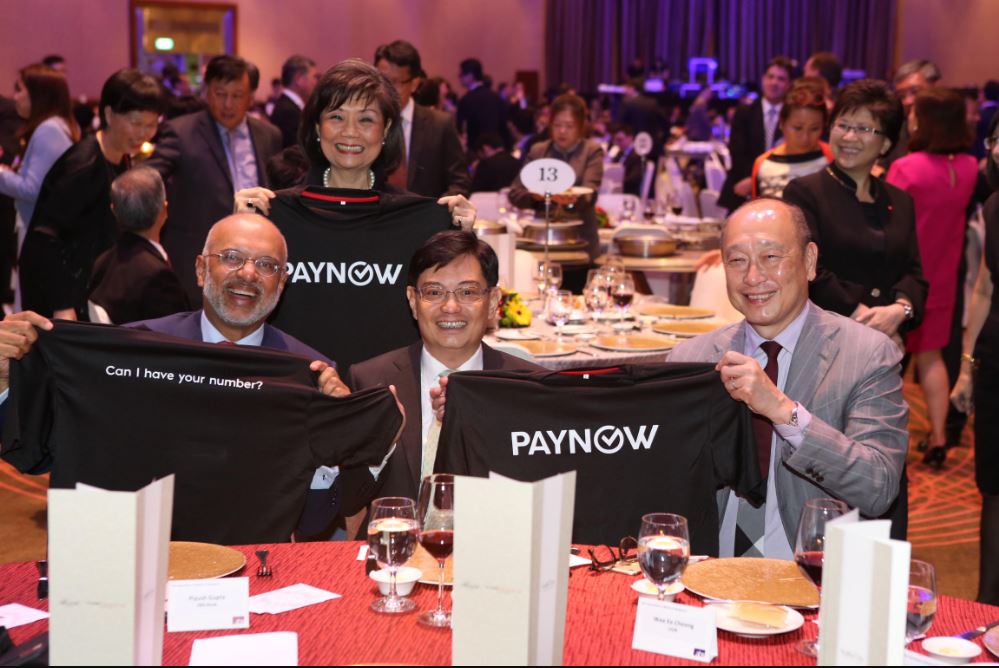Singapore banks must innovate; will be allowed to operate or own consumer goods and services online businesses, says Heng Swee Keat
Sign up now: Get ST's newsletters delivered to your inbox

Mr Heng said the relaxation of rules would help enable banks to 'embed banking services into consumers' day-to-day activities'.
PHOTO: LIANHE ZAOBAO
Yasmine Yahya
Follow topic:
SINGAPORE - Finance Minister Heng Swee Keat said on Tuesday (June 27) evening that local banks will soon be allowed to operate or acquire major stakes in digital platforms matching buyers and sellers, and businesses involved in the online sale of consumer goods and services.
Speaking at the Association of Banks in Singapore's (ABS) annual dinner, Mr Heng said this relaxation of rules would help enable banks to "embed banking services into consumers' day-to-day activities".
This move dovetailed with the ABS' own announcement on Tuesday of a new fund transfer system that requires just the recipient's mobile phone number or NRIC number.
Customers of seven banks participating in the PayNow service system, which include DBS, OCBC and United Overseas Bank, can register for the service from 8am on July 10.
In his speech, Mr Heng noted that banks have to innovate to keep up with new financial technology players.
"The advent of mobile apps and e-commerce platforms have disrupted traditional business models and transformed consumer preferences," he said.
"Technology is also transforming financial services and the way banking customers consume these services."
For example, he noted, non-financial companies like China's WeChat have created platforms enabling customers not only to chat, but also to purchase and pay for goods and services, including financial products, all within one app.
And so the line between financial and non-financial businesses is blurring, Mr Heng said, which means banks are facing increasing competition from online and non-financial players.
To help banks better compete and innovate more easily in this era of disruption, the Monetary Authority of Singapore (MAS) will streamline the regulatory requirements for banks that want to conduct or acquire major equity stakes in permissible non-financial businesses that are related or complementary to their core financial businesses.
That is, they can invest in digital platforms matching buyers and sellers and businesses involved in the online sale of consumer goods and services.
Beyond digital platforms, banks would need to seek case-by-case approval.
Once this new framework is implemented, banks will no longer need to get MAS approval before embarking on such ventures.
Currently, banks are not allowed to sell consumer goods.
"But non-bank digital players are now offering a seamless transactional experience in the sale as well as payment of consumer goods," Mr Heng noted.
However, such non-financial businesses should be limited to just 10 per cent of a bank's capital funds.
The MAS will release operational details of the new framework in a consultation paper in September.
DBS chief executive Piyush Gupta, in his speech at the dinner, also noted that many new technology players "operate much like banks, but are often benefited from a more favourable regulatory regime, often in the desire to spur innovation and competition".
"This, of course, has the possibility of bringing tremendous benefit in terms of customer outcomes. However, the impact this has on economic value capture within the system is somewhat less clear."
This can have serious implications for Singapore, where financial services are 13 per cent of the economy, Mr Gupta said.

